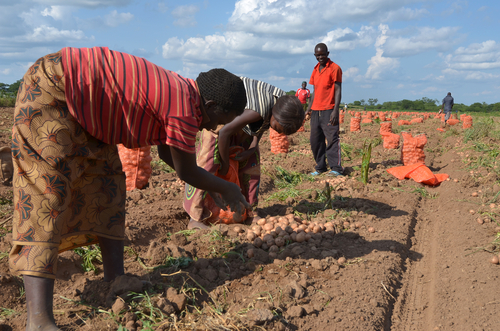Various studies have shown that there are certain periods of the year where farmers in Zambia are subjected to food insecurity. Findings from a Tobacco Farmers Survey conducted in Zambia show that some farmers ran out of maize that they grew on their own land.
As a result, they had to purchase maize to make up the difference.
Maize is a staple food in country.For most, the maize they grew lasted their household between seven and nine months resulting in two possible scenarios. Either there may be months of the year that the farmers suffer from food insecurity.
Or, it may show how they participate in the agricultural marketplace by growing other commodities like tobacco, to sell and buy maize with their profits. The results of the initial research show that in these times food is scarce.
Richard Zulu will be looking at the differences in food security between tobacco farming households and non-tobacco households.
He will then determine how these differences translate into the nutrition status of children under the age of five.
Zulu is one of 12 awardees to receive USD5000 to conduct research in tobacco control as part of the Tobacco Control Research Agenda. The agenda was launched on November 20, 2020.
Zulu’s study will take place in the Nkeyema District of Western Zambia, known for tobacco farming. As part of his study, Zulu will be designing a structured questionnaire that will be used to collect data in both tobacco farming communities and those who don’t farm tobacco.
The questionnaire will target households where there are children who are under- five. He plans on surveying about 200 households.
For Zulu, answering this research question would help put to rest the question of whether or not farmers who shift into alternative livelihoods have better food security and better nutrition for under- five children.
As part of his research, Zulu wants to understand how much Zambian communities know about food and nutrition for children under the age of five, what their attitudes were towards these policies and how well they were implemented in these communities.
He will compare child nutrition and food security issues between the tobacco and non-tobacco farming households. Ultimately his study aims to enhance the way that the Zambian government designs, implements and evaluates nutrition programs in tobacco growing communities.

